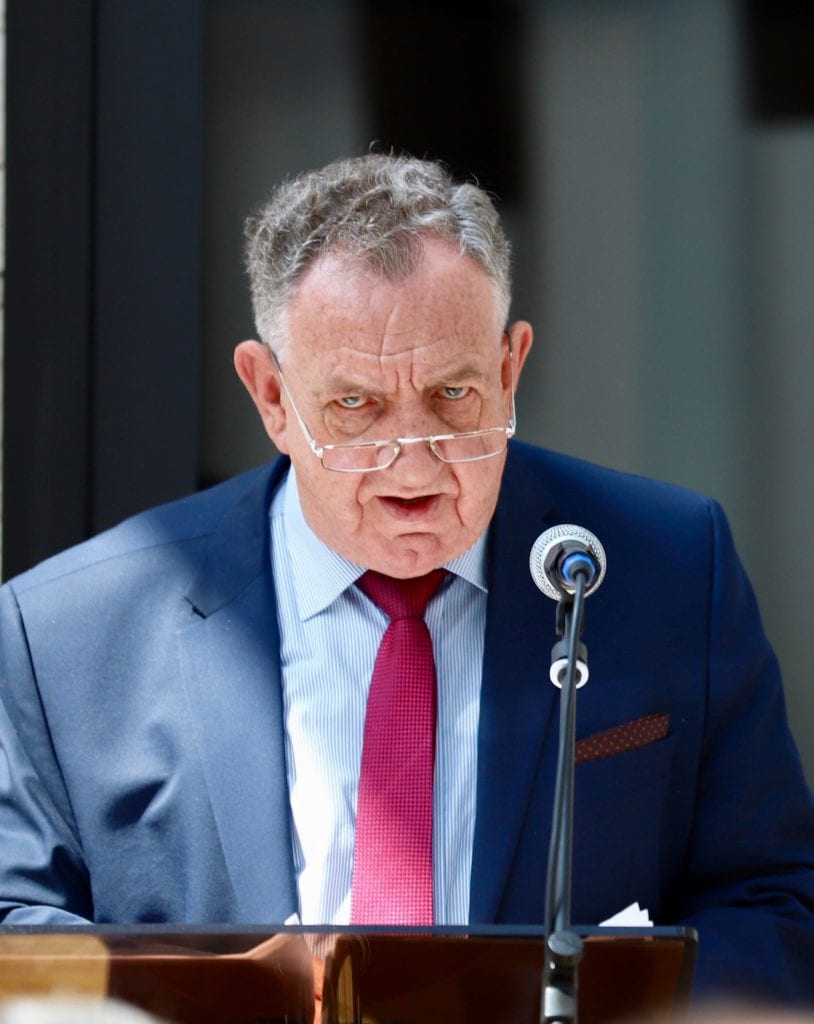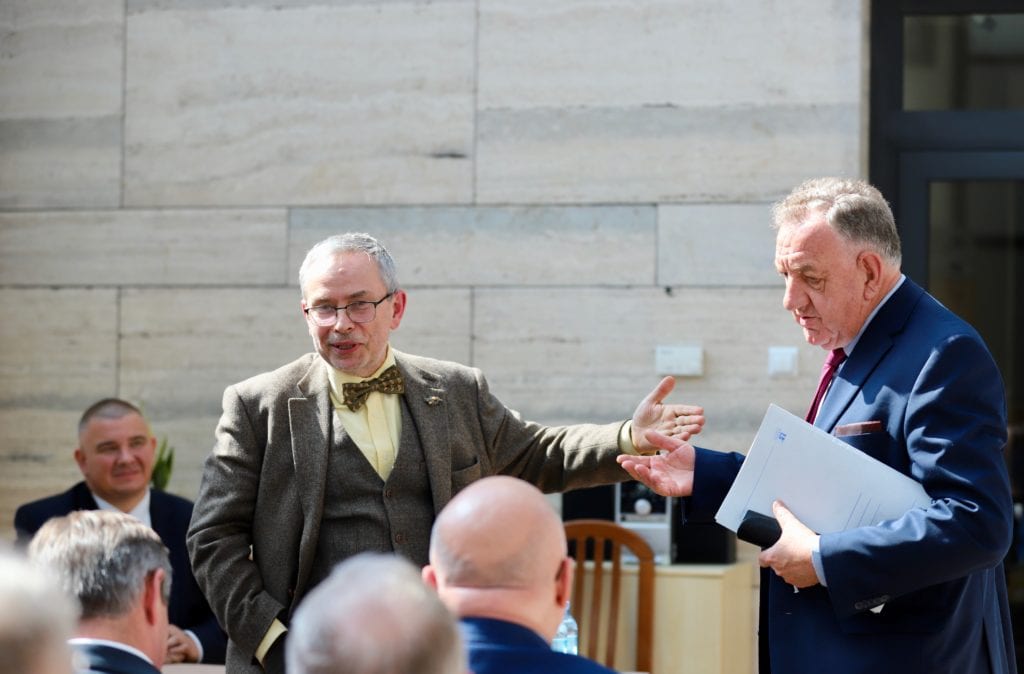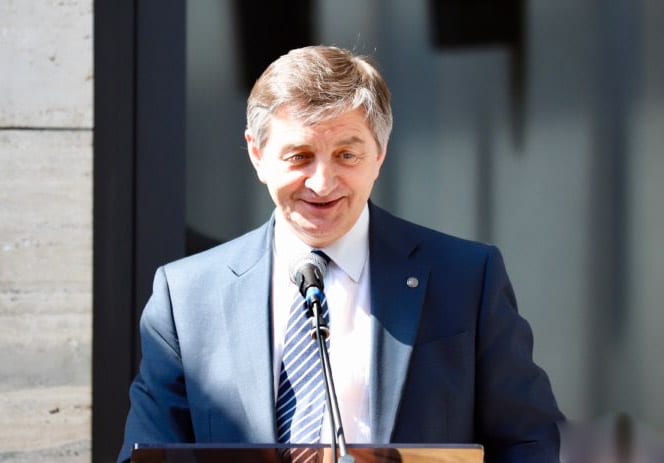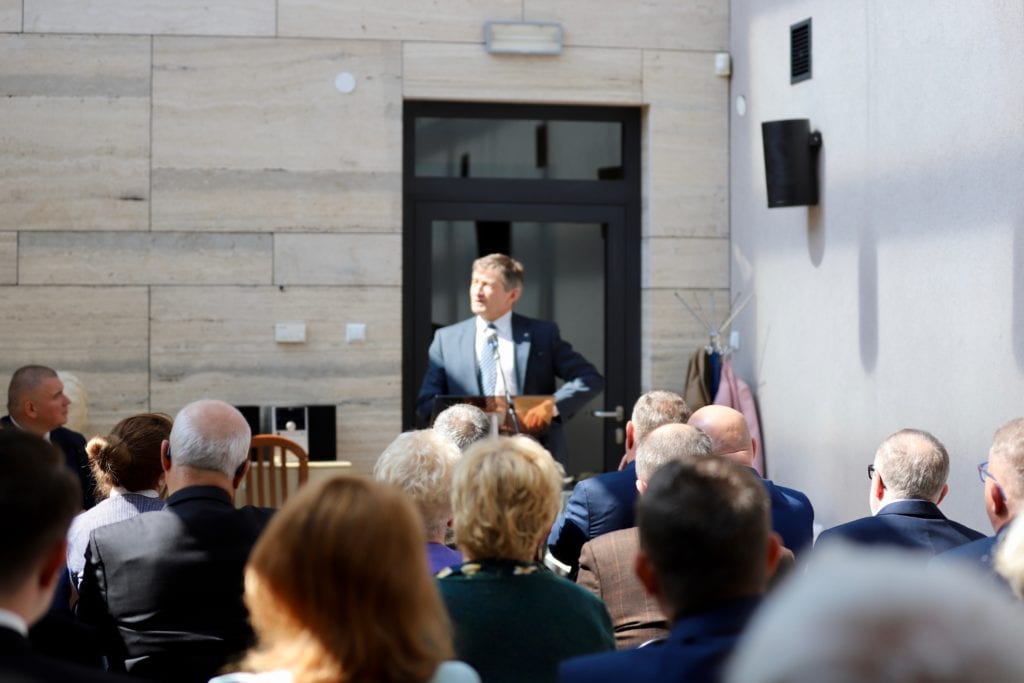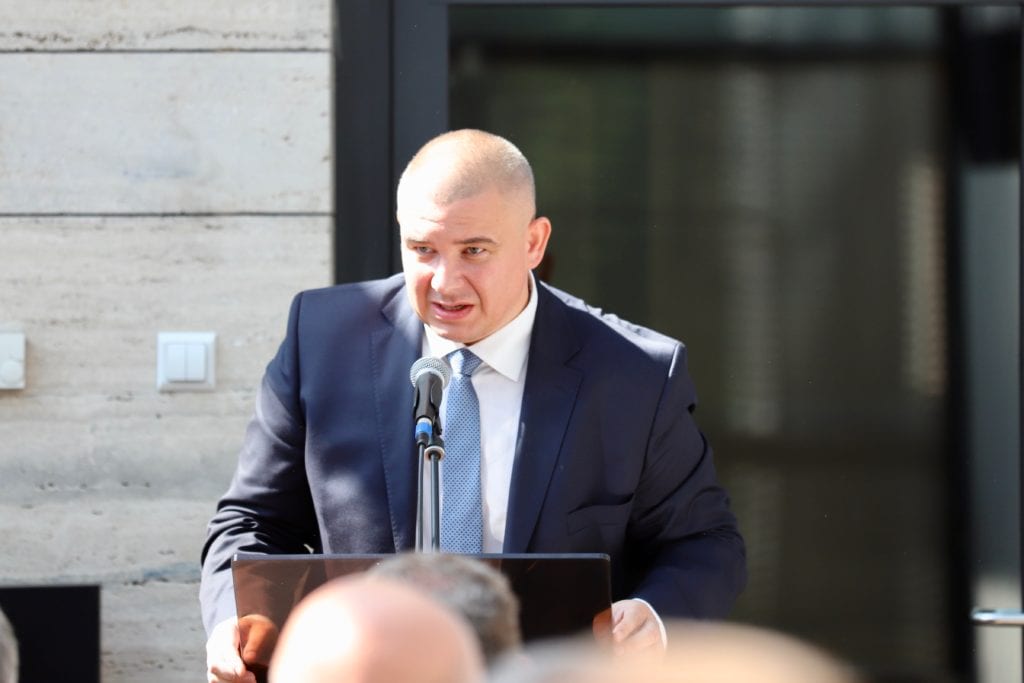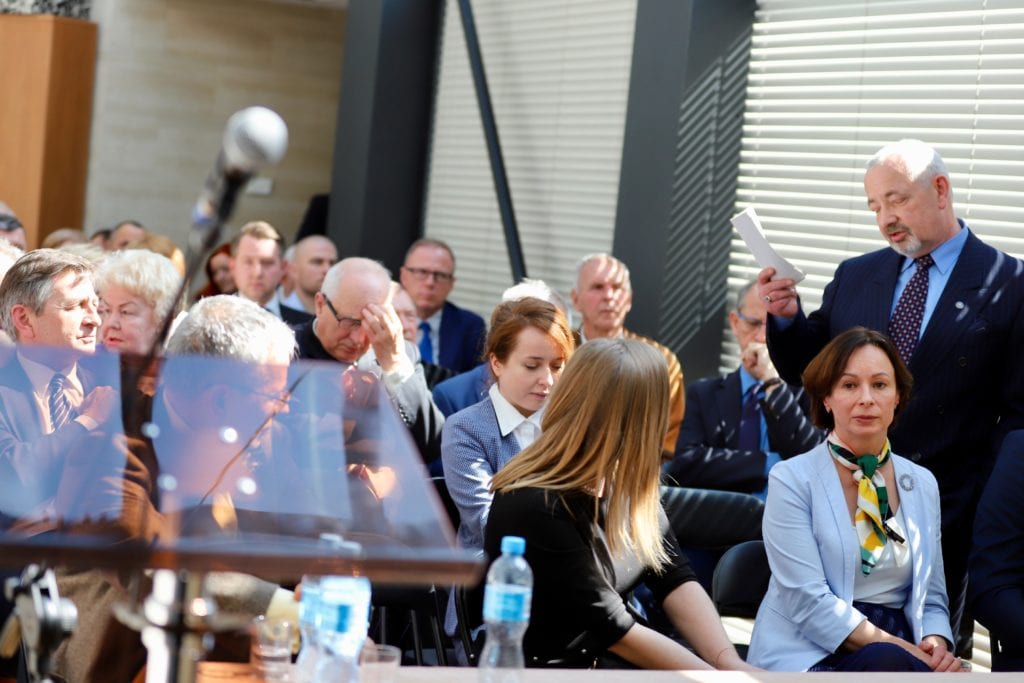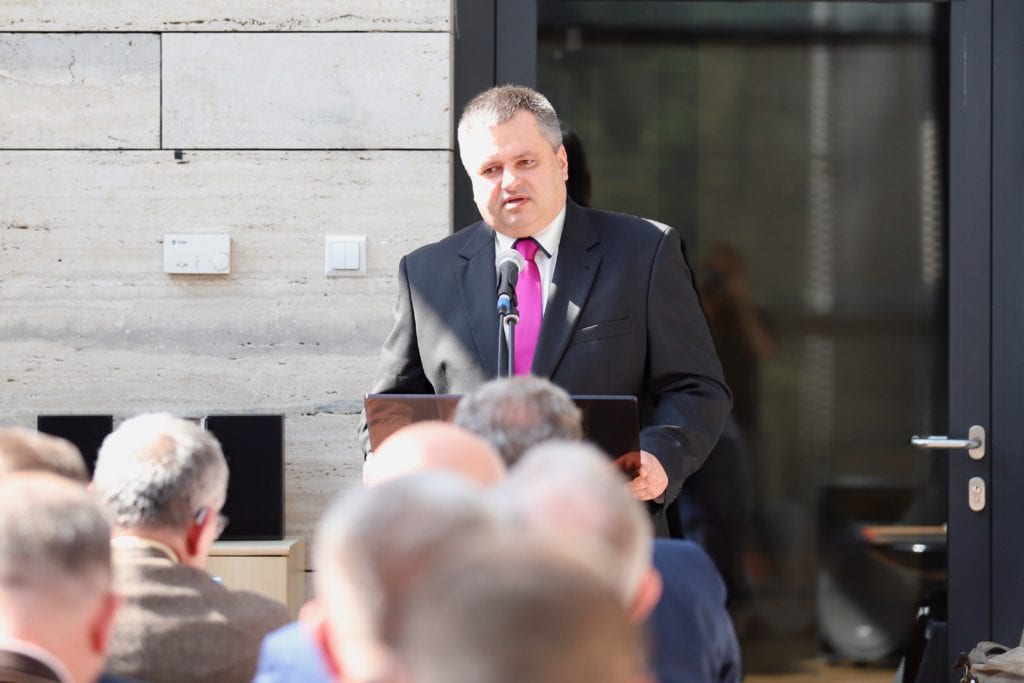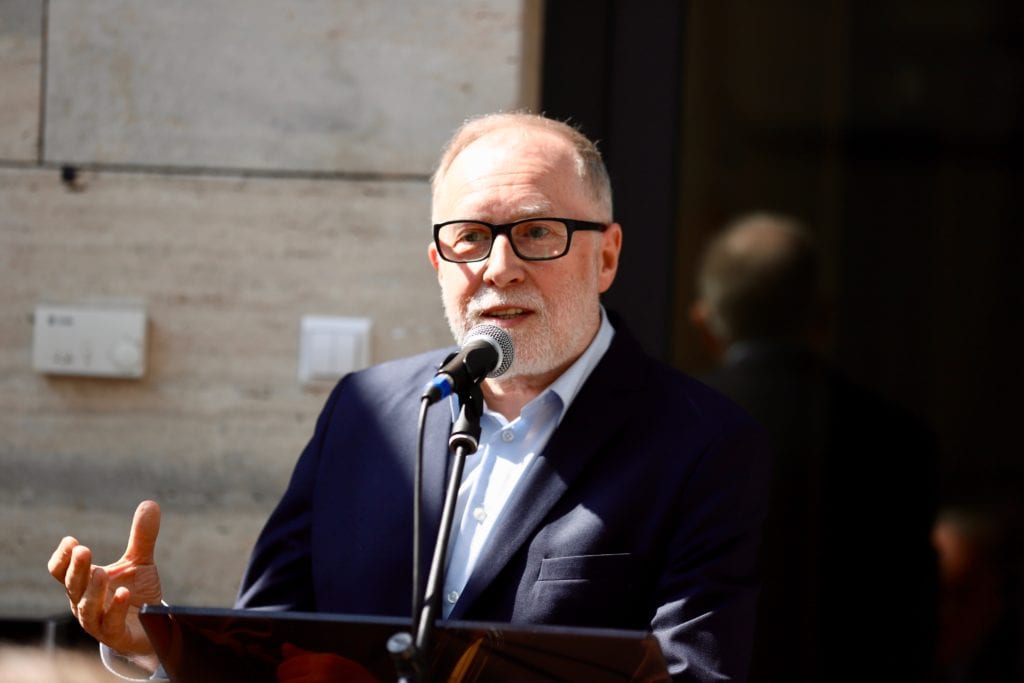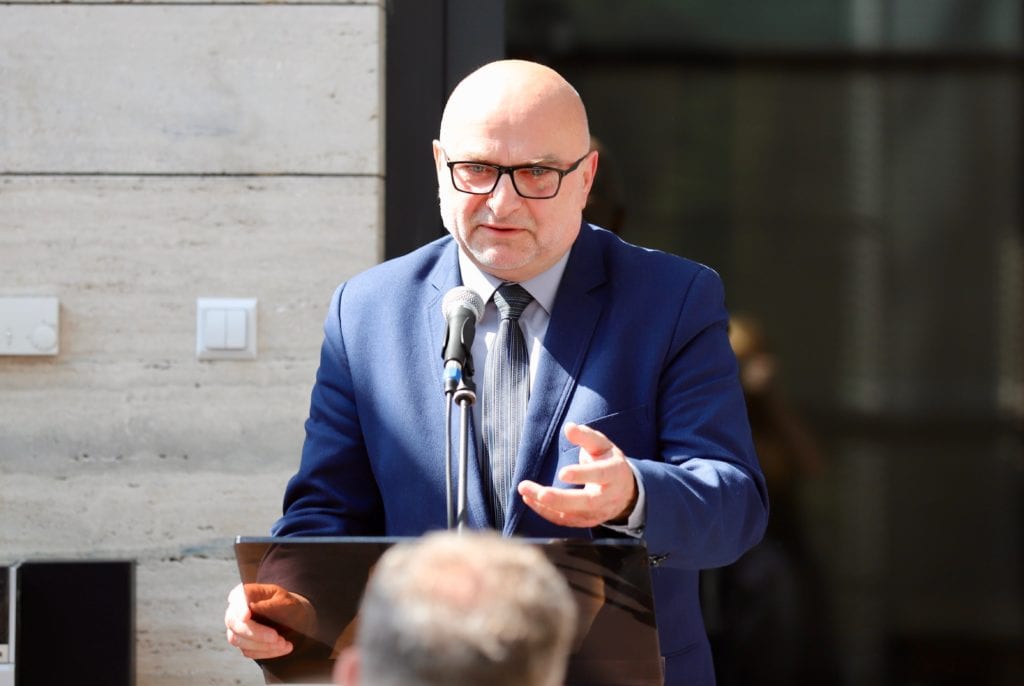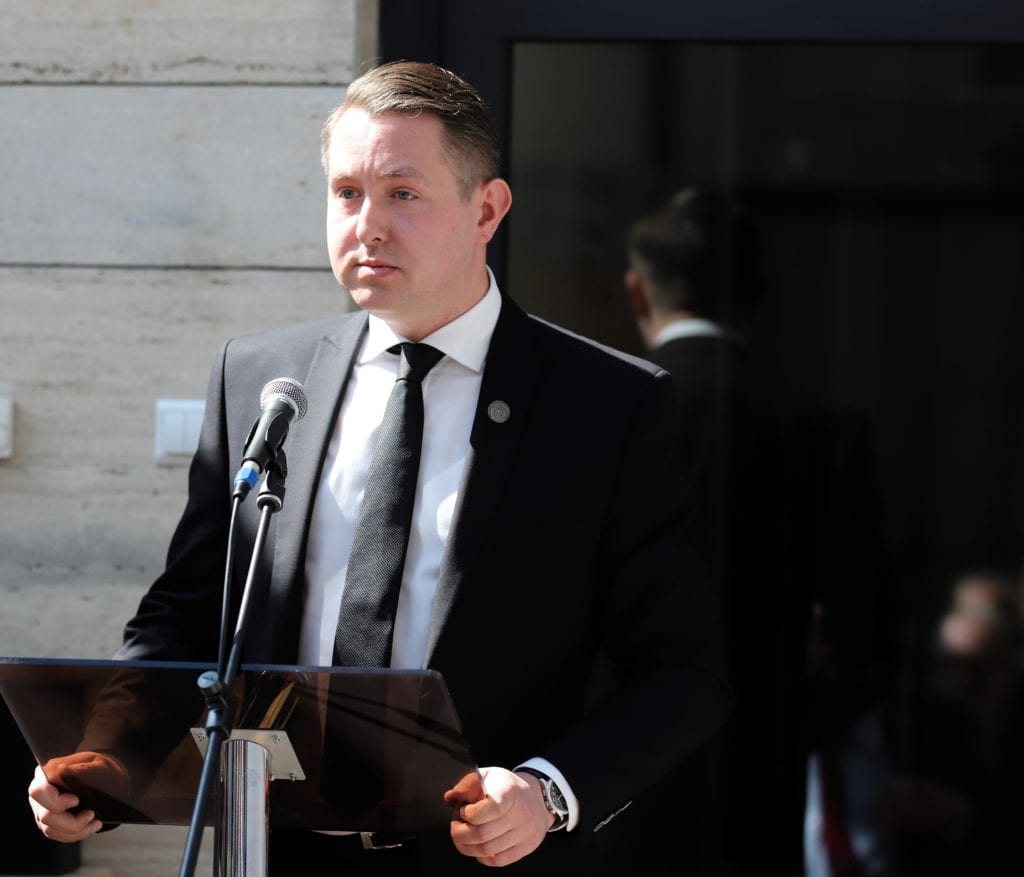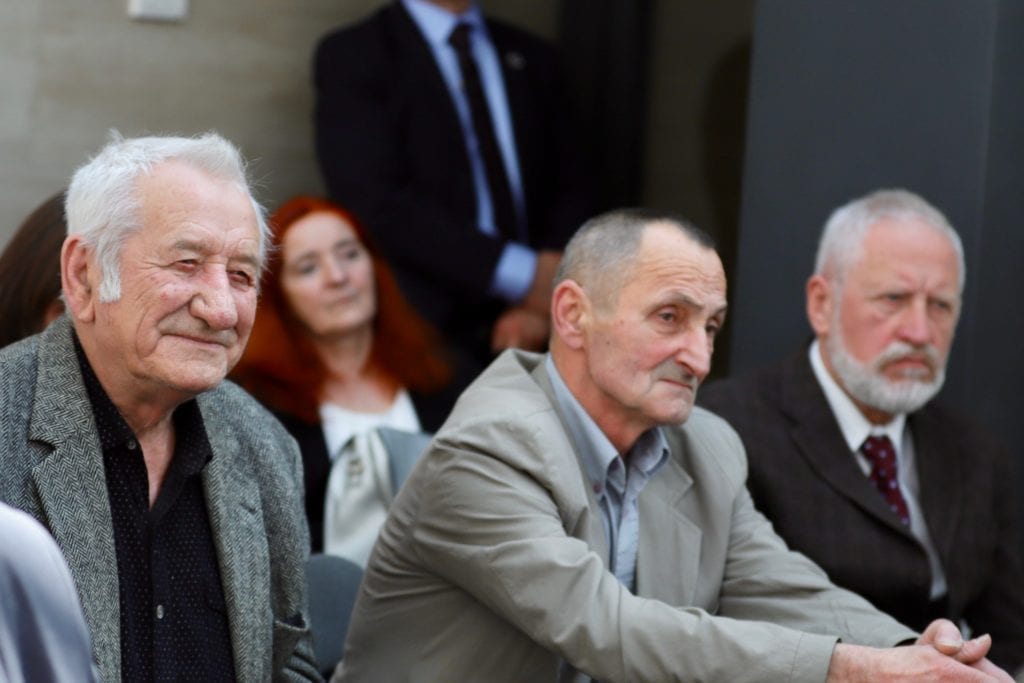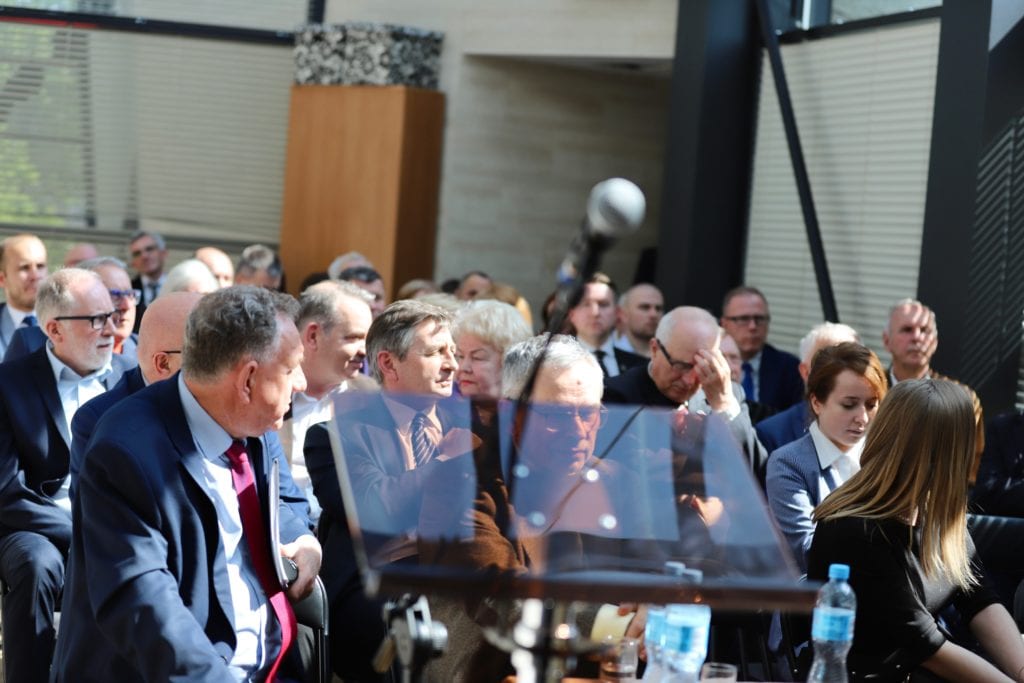How changes took place in Poland after the fall of communism was discussed during the first meeting of the Carpathian Discussion Club at the National Museum of the Przemysl Region.
Professor Jan Draus compared the road to freedom of Poland and Hungary. He recalled that for Poland and Central and Eastern Europe 1989 marked the end of communism, which had enslaved a large part of the world's population for decades and was only a real experiment insofar as it could feed enslaved societies and suppress social revolts with violence... As a utopia communism lasted from crisis to crisis and its tool was violence.
Summing up the lecture, the professor emphasized that although everything started with Poland, other other countries were ahead of it in the democratization process. It took 10 years in Poland years, in Hungary 10 months, in East Germany 10 weeks, in Czechoslovakia 10 days. W In these countries freedom was decided by the opposition and society, in Romania and Romania and Hungary - palace coups. In all of them the dictators were removed from power. Z With the exception of Poland, where General Wojciech Jaruzelski was appointed president of the country.
It is still difficult It is still difficult to explain and, as Andrzej Klarkowski emphasized, the year 1989 is still a It remains a mystery and a riddle. It remains a question to which we will not know the answer. Klarkowski reminded that for the communist authorities the elections of 1989 were Klarkowski recalled that for the communist authorities the elections of 1989 were to draw the opposition to the ruling team in order to give it legitimacy for a few years. Several years. However, social processes sometimes overtake the thinking of politicians and analysts. At the time, there was a wild surge of enthusiasm after the June elections, there was a crazy growth of enthusiasm after the June elections, a growth of trust in the opposition and a dramatic decrease of trust in the ruling PZPR. The PRL authorities were shocked, the democratic opposition did not use the full public credit of trust. This failure to use the social mandate postponed and hindered the necessary and expected changes. However, the balance of changes after 1989 was evaluated well by the Polish society, even better even better than the societies of our neighbors. What we did in Poland, determined the changes in the region.
Recent CBOS surveys indicate that the first free elections of 1991 are considered the collapse of communism. However, the evaluation of the communist past is still not unequivocal. There is still resentment about the times connected with PRL, opinions are still divided when it comes to the necessity of introducing the martial law... Ambiguous legends are created about what PRL and PZPR were... which do not reflect the reality. We remember that there was fear, enslavement, blackmail, political murders. These were not times of ridiculous queues and ration cards, stupid ZOMO, militia, inept SB, it was a time of torment, persecution, poverty. Our task is to convey the truth about what happened, how important it is to be courageous both during the time of opposition to the People's Republic of Poland, as well as courageous in introducing the expected social and political changes.
Perhaps, if not for the voters in 1989 giving victory to the democratic opposition, the changes would have been delayed Perhaps if not for the voters in 1989 giving victory to the democratic opposition, the changes would have been delayed for many years. They would have come later but the cost and drama would have been much greater. After Unfortunately, after the victory in 1989 mistakes were made. The system was not changed at once - The system was not changed at once as the voters wanted in 1989. Those responsible for criminal, criminal behaviours in PRL were not punished...
Marek Kuchciński took the floor as a person who actively participated in those changes. He recalled that in July 1989 from Marek Kaminski They launched protests by telex. The protests in Przemyśl were strong and dramatic (MP Robert Majka). They concerned the national list after the first round of elections and the amendment of the electoral law between rounds to allow the addition of the national list.
During the first congress of Porozumienie Centrum the idea of decommunization was put forward by Przemysl and Rzeszow structures.
The Marshal noted the positive atmosphere that accompanied the Podkarpackie opposition, as well as its unity, strength and determination in the fight against communism. - I do not regret that time, it was very interesting," he concluded.
Waldemar Wiglusz, on the other hand, noted that many things that were happening at the national and regional level at that time - were not known. - There were 49 provinces and no internet or cell phones. A lot of information about those times can be found in the interviews conducted by Eliza Olczyk in the weekend edition of Rzeczpospolita: Plus-Minus - with activists from that era. Let us hope that these interviews will be published one day in a book form, because they are a mine of knowledge from the witnesses of those events. Since today we ourselves are critical of the stories from those days - it remains to encourage you to write your own accounts and pass them on, for example to the Institute of National Remembrance, the press, or in any form you wish," said Wilgusz.
CBOS survey in 2019 and changes in results compared to 2009, 2014
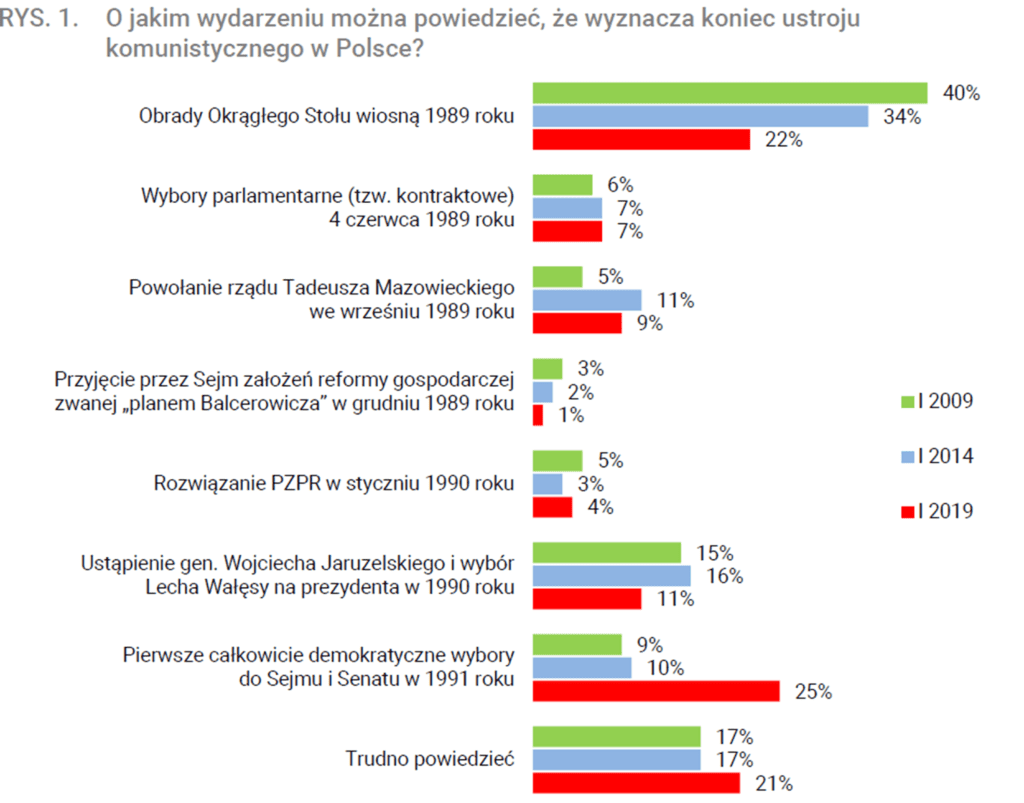
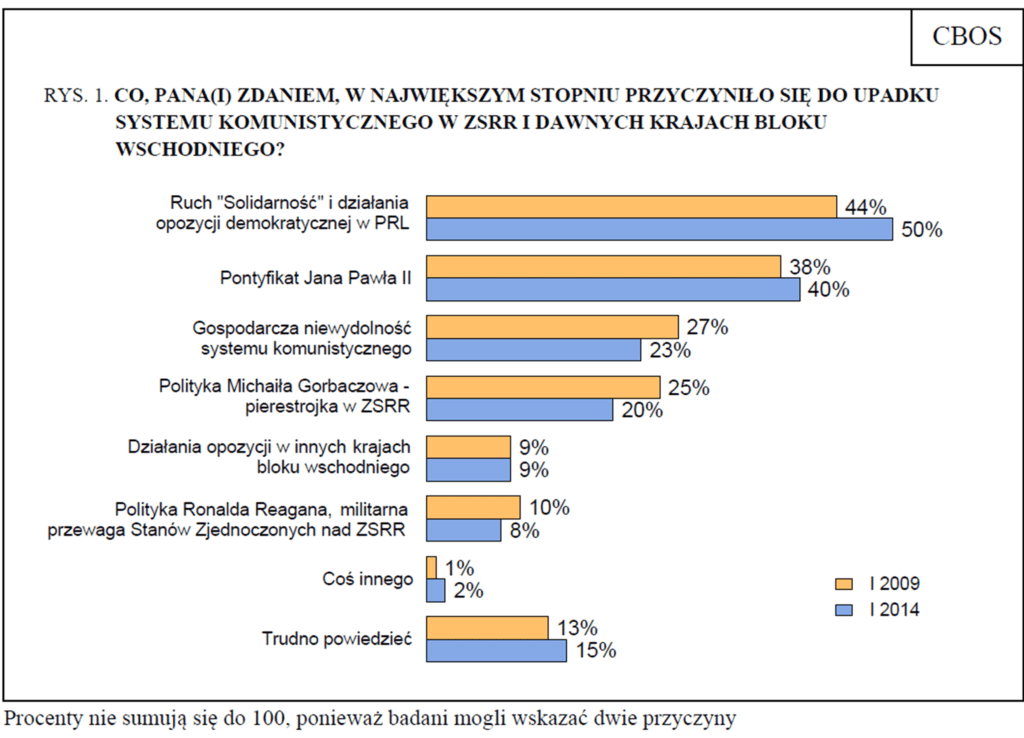
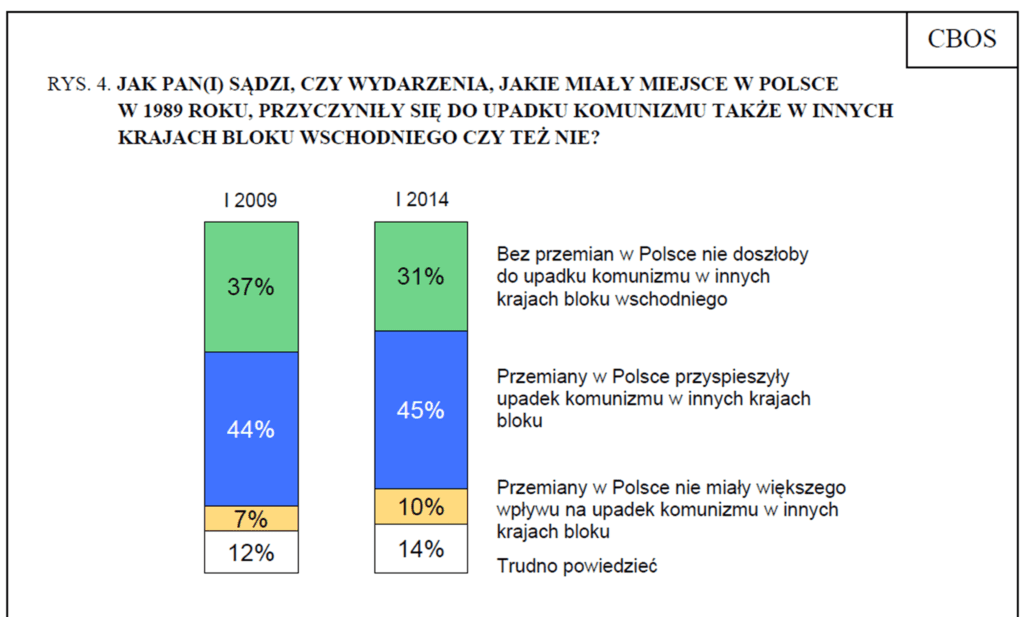
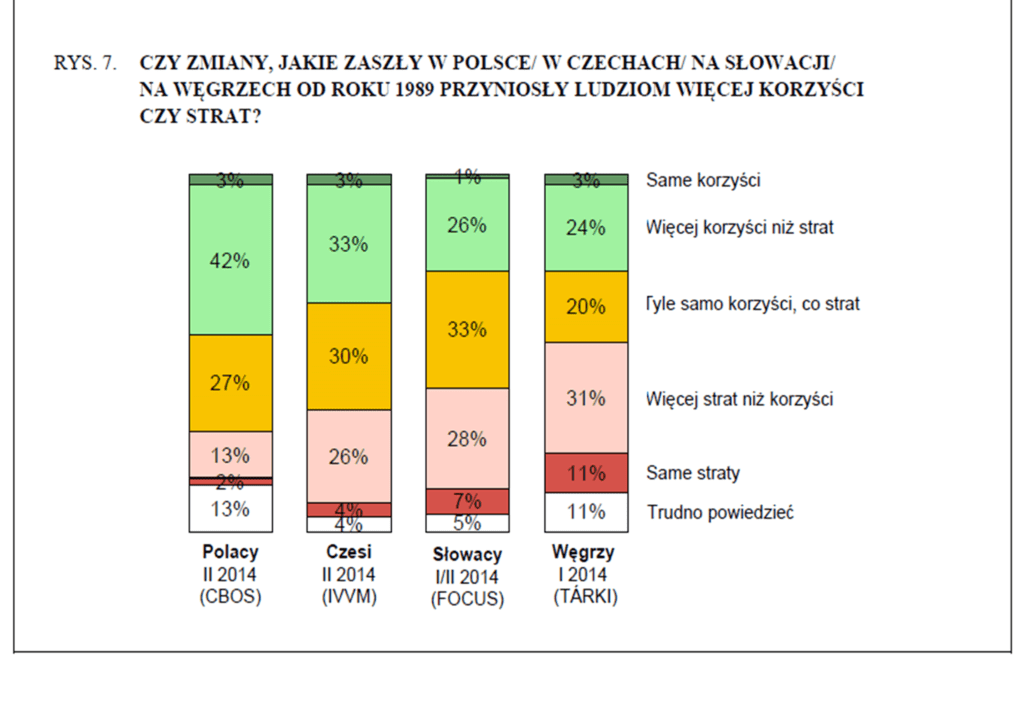
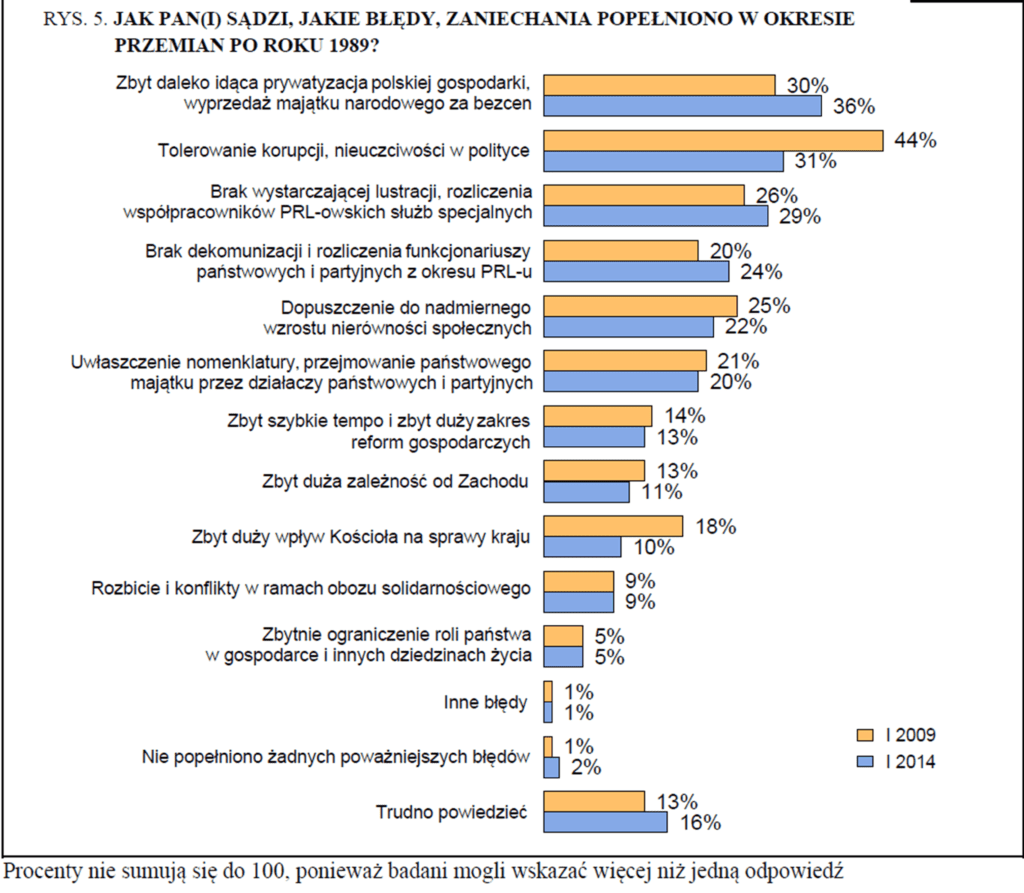
text, photo Marta Olejnik
